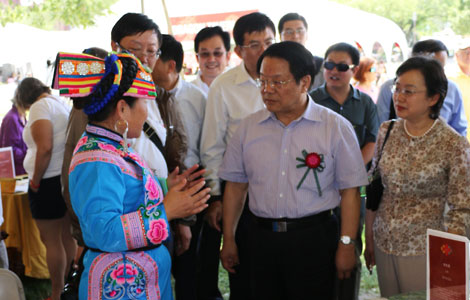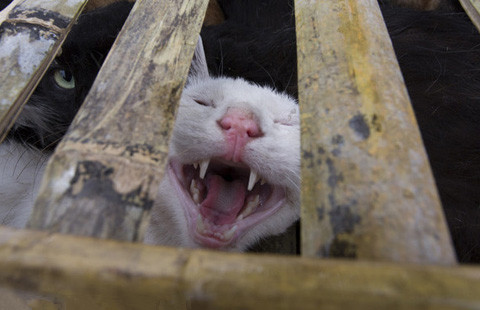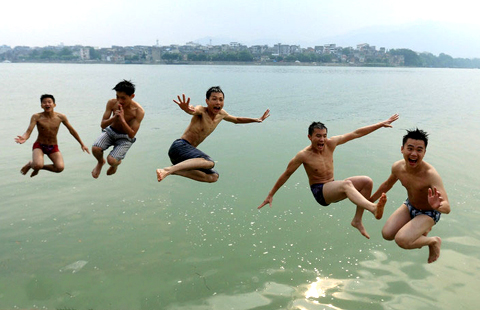Displaced Pakistanis face troubled Ramadan
Updated: 2014-07-01 07:41
By Agencies in Bannu and Islamabad, Pakistan (China Daily)
|
||||||||
For half a million Pakistanis displaced by a military offensive, the prospect of fasting during the Muslim holy month of Ramadan amid severe food shortages has sharpened anger toward the government.
The Pakistani military launched a ground offensive - the second phase of an operation that started in mid-June - against militant strongholds in North Waziristan on Monday after evacuating nearly half a million people from the tribal region, the army said.
Far from the comforts of home in their cool mountainous district, many displaced people are facing up to life in tent villages a few kilometers east of the region's border.
Temperatures approach 50 C, and riots frequently break out over the lack of food supplies.
At a food distribution point in the town of Bannu, Niaz Wali Khan, a 55-year-old pharmacy owner, said he had been queuing for four days but was turned away without rations each time.
"We are depressed over the role of the military that is responsible for our suffering," said Khan. "They have launched this operation just before the Holy Month, but these militants were living here for years. Why now?"
But Khan vowed to adhere to the month of fasting required of observant Muslims, which began on Sunday in parts of Pakistan and Monday in others, despite the hurdles.
"We are facing extreme difficulties after the displacement but I will be fasting with a hope that God will solve our problems," he said.
Others were less confident they would meet the challenge.
"We have spent all our money paying to rent vehicles to get here and for accommodation. Now it seems we will only have water left to break our fasts," said Jalat Khan, who was also standing in line.
"For me, it will be difficult to take care of my prayers in this homelessness," said the 43-year-old.
Despite the misery, some were hopeful that Ramadan would bring blessings.
Muhammad Aziz, a 31-year-old laborer, lost track of four of his nine children on the two-day trek undertaken by thousands who fled his village to a camp in Bannu.
"It was a dark day for me, and my wife would not stop crying for four days," said Aziz. But on the fifth day, his prayers were answered when his children were found by a relative and came home.
His family's joy was soon compounded when his wife gave birth to a healthy baby boy - whom they named Azb Khan, after a sword used by the Prophet Muhammad that is also the name of the military offensive.
"This word will remind me of the sufferings we passed through and the happiness of his birth," said Aziz.
AFP - AP
(China Daily 07/01/2014 page11)

 Culture camp delivers authentic China
Culture camp delivers authentic China
 RIMPAC press conference holds in Hawaii
RIMPAC press conference holds in Hawaii
 Mulan returns to New York City
Mulan returns to New York City
 US admiral tours Chinese warship
US admiral tours Chinese warship
 Bank of China opens branch in Queens
Bank of China opens branch in Queens
 Minister: Culture the strongest bond linking China, US
Minister: Culture the strongest bond linking China, US
 Asian Film Festival gets underway with Overheard 3
Asian Film Festival gets underway with Overheard 3
 Chilean wines find a market in China
Chilean wines find a market in China
Most Viewed
Editor's Picks

|

|

|

|

|

|
Today's Top News
Bank of China New York opens Queens branch
Former military leader expelled from CPC
China to increase personnel for peace
China, US pact to curb offshore tax evasion
Transformers 4 breaks records in China
DPRK to put two Americans on trial for hostile acts
China, US agree to curb tax evasion
Suspect pleads not guilty in Benghazi attack
US Weekly

|

|





